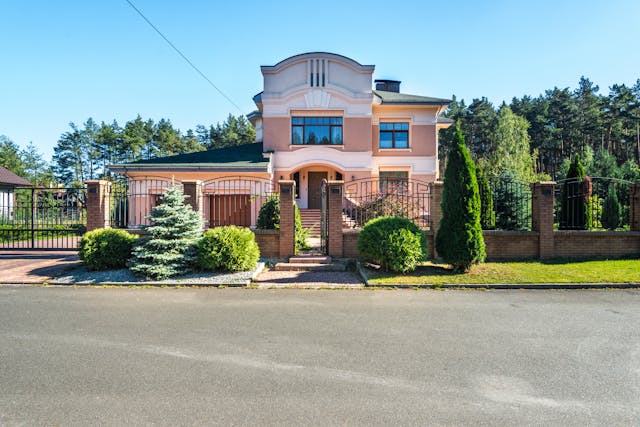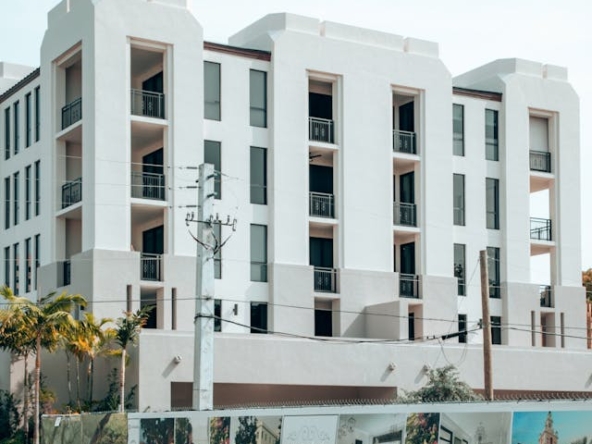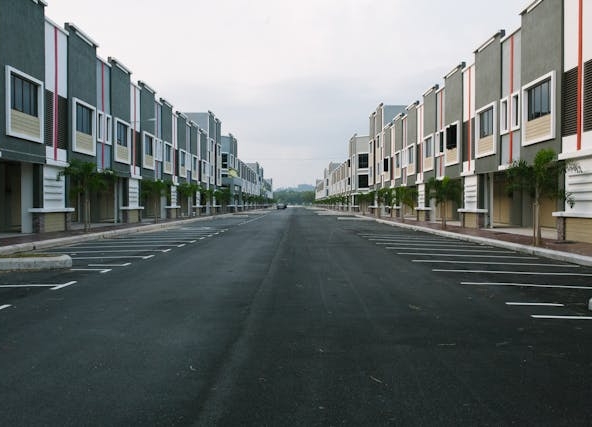Residential real estate refers to properties designed for living purposes, including single-family homes, condominiums, townhouses, and multi-family units. In Winnipeg, Manitoba, the residential real estate market offers a diverse range of options for homebuyers, from charming character homes in established neighborhoods to modern condos in up-and-coming areas.
Key takeaways
- Winnipeg’s residential real estate market offers a variety of housing options to suit different lifestyles and budgets
- Understanding the local market trends and neighborhoods is crucial for making informed decisions
- Financing options and government programs are available to help Winnipeg homebuyers
- Working with a licensed real estate agent can provide valuable insights and guidance throughout the buying process
- Home inspections and property assessments are important steps in evaluating potential properties

Understanding Winnipeg’s residential real estate market
Winnipeg’s residential real estate market has its unique characteristics and trends. The city’s diverse neighborhoods, from the historic Exchange District to the suburban areas of Transcona and St. Vital, offer a wide range of housing options for buyers.
Market trends and pricing
Over the past few years, Winnipeg’s real estate market has seen steady growth in home prices. However, compared to other major Canadian cities like Toronto or Vancouver, Winnipeg remains relatively affordable for homebuyers. The average home price in Winnipeg tends to be lower than the national average, making it an attractive option for first-time homebuyers and those looking to upgrade.
Popular neighborhoods for residential real estate
Winnipeg boasts several neighborhoods that are particularly popular among homebuyers. Some of these include:
- River Heights: Known for its tree-lined streets and character homes
- Osborne Village: A vibrant area with a mix of apartments and older homes
- Bridgwater: A newer development with modern amenities and family-friendly features
- St. Boniface: Rich in French-Canadian culture and history
- Wolseley: An eclectic neighborhood with a strong sense of community
Types of residential properties in Winnipeg
Winnipeg offers a variety of residential property types to suit different needs and preferences:
- Single-family homes: Detached houses with private yards
- Condominiums: Individually owned units within a larger complex
- Townhouses: Multi-level homes that share walls with neighboring units
- Duplexes and triplexes: Multi-unit properties with separate living spaces
- Character homes: Older properties with unique architectural features
Financing your Winnipeg home purchase
Securing financing is a crucial step in the home-buying process. Winnipeg homebuyers have several options available to them.
Mortgage options
Banks and credit unions in Winnipeg offer various mortgage products, including:
- Fixed-rate mortgages
- Variable-rate mortgages
- Open mortgages
- Closed mortgages
It’s important to shop around and compare rates and terms from different lenders to find the best option for your situation.
Government programs for homebuyers
The Canadian government offers several programs to assist homebuyers, some of which are particularly relevant to Winnipeg residents:
- First-Time Home Buyer Incentive
- Home Buyers’ Plan (HBP)
- GST/HST New Housing Rebate
Additionally, the Manitoba government provides programs such as the Rural Homeownership Program and the Homeownership Manitoba program, which can help eligible buyers with down payments and other costs.

Working with a Winnipeg real estate agent
Engaging the services of a licensed real estate agent can be invaluable when navigating Winnipeg’s residential real estate market. A local agent can provide insights into neighborhood trends, property values, and market conditions that may not be readily apparent to buyers.
Benefits of using a real estate agent
Working with a real estate agent in Winnipeg offers several advantages:
- Access to MLS listings and off-market properties
- Negotiation expertise
- Knowledge of local bylaws and regulations
- Guidance through the paperwork and closing process
- Connections with other professionals such as home inspectors and lawyers
Choosing the right agent
When selecting a real estate agent in Winnipeg, consider the following factors:
- Local market knowledge
- Experience with your preferred property type and price range
- Communication style and availability
- References and reviews from past clients
- Professional certifications and memberships
The home buying process in Winnipeg
Understanding the steps involved in purchasing a home in Winnipeg can help buyers feel more confident and prepared throughout the process.
Determine your budget and get pre-approved
Before starting your home search, it’s important to have a clear understanding of your financial situation. Getting pre-approved for a mortgage can give you a realistic idea of what you can afford and make your offers more attractive to sellers.
Start your home search
Once you know your budget, you can begin looking for properties that meet your criteria. This may involve attending open houses, scheduling private viewings, and researching neighborhoods.
Make an offer
When you find a property you like, your real estate agent can help you prepare and submit an offer. This will typically include the purchase price, conditions, and any included items.
Home inspection and appraisal
If your offer is accepted, the next step is usually to have a professional home inspection conducted. This can help identify any potential issues with the property. An appraisal may also be required by your lender to confirm the property’s value.
Finalizing the purchase
Once all conditions have been met and you’re satisfied with the property, you’ll work with your lawyer to finalize the purchase. This involves reviewing and signing legal documents, arranging for title insurance, and transferring funds.

Important considerations for Winnipeg homebuyers
When purchasing residential real estate in Winnipeg, there are several factors to keep in mind:
Climate and energy efficiency
Winnipeg’s climate can be extreme, with very cold winters and hot summers. Consider the energy efficiency of potential homes, including insulation, windows, and heating systems, as these can significantly impact your utility costs.
Property taxes
Winnipeg’s property tax rates can vary depending on the neighborhood and property type. Be sure to factor in annual property taxes when budgeting for your home purchase.
Flood risk
Some areas of Winnipeg are prone to flooding, particularly those near the Red River and Assiniboine River. Research flood risks in your preferred neighborhoods and consider the potential impact on insurance costs and property values.
Public transportation and commute times
If you rely on public transportation, consider the proximity of potential homes to bus routes or rapid transit corridors. Winnipeg’s traffic patterns can also affect commute times, so factor this into your decision-making process.
Future development plans
Research any planned developments or infrastructure projects in the areas you’re considering. These can potentially impact property values and quality of life in the future.
Winnipeg’s residential real estate market: Data and trends
To provide a clearer picture of Winnipeg’s residential real estate market, let’s look at some recent data and trends:
| Year | Average Home Price | Year-over-Year Change |
|---|---|---|
| 2020 | $318,000 | +4.5% |
| 2021 | $352,000 | +10.7% |
| 2022 | $379,000 | +7.7% |
| Neighborhood | Average Price (2022) | Property Type |
|---|---|---|
| River Heights | $425,000 | Single-family home |
| Osborne Village | $280,000 | Condominium |
| Bridgwater | $450,000 | Single-family home |
| St. Boniface | $330,000 | Character home |
| Wolseley | $385,000 | Single-family home |

Challenges and opportunities in Winnipeg’s residential real estate market
Like any real estate market, Winnipeg presents both challenges and opportunities for homebuyers.
Challenges
- Limited inventory in popular neighborhoods
- Rising home prices in some areas
- Older housing stock requiring more maintenance and updates
- Potential for bidding wars in competitive markets
Opportunities
- Relatively affordable prices compared to other major Canadian cities
- A diverse range of neighborhoods and property types
- Strong job market and stable economy
- Government programs to assist first-time homebuyers
- Potential for long-term appreciation in developing areas
Tips for successful house hunting in Winnipeg
To make your home search more effective and enjoyable, consider the following tips:
- Define your must-haves and nice-to-haves
- Research neighborhoods thoroughly before committing
- Be prepared to act quickly in competitive markets
- Consider properties that may need some updates but have good potential
- Don’t overlook the importance of location and neighborhood amenities
The role of home inspections in Winnipeg
Home inspections are a critical part of the home-buying process in Winnipeg, especially given the city’s older housing stock and extreme climate.
What to expect from a home inspection
A thorough home inspection should cover:
- Foundation and structural elements
- Roof condition and age
- Electrical and plumbing systems
- Heating and cooling systems
- Windows and insulation
- Presence of asbestos or lead paint in older homes
Common issues in Winnipeg homes
Some issues that are frequently encountered in Winnipeg homes include:
- Foundation problems due to shifting soil
- Outdated electrical systems in older homes
- Plumbing issues, particularly in areas with older infrastructure
- Roof damage from harsh winters and ice dams
- Moisture and mold problems in basements
Navigating Winnipeg’s condominium market
Condominiums are becoming an increasingly popular option for Winnipeg homebuyers, particularly in downtown areas, and for first-time buyers.
Benefits of condo living in Winnipeg
- Lower maintenance requirements
- Often more affordable than single-family homes
- Amenities such as fitness centers and party rooms
- Increased security features
- Often located in desirable, walkable neighborhoods
Considerations when buying a condo
When considering a condo purchase in Winnipeg, be sure to:
- Review the condo corporation’s financial statements
- Understand the condo fees and what they cover
- Check the reserve fund status
- Review the condo bylaws and regulations
- Consider the building’s age and potential for special assessments

The impact of seasonal changes on Winnipeg’s real estate market
Winnipeg’s real estate market can be influenced by the city’s distinct seasons.
Winter market trends
The winter months typically see slower activity in Winnipeg’s real estate market. However, this can present opportunities for buyers:
- Less competition from other buyers
- Motivated sellers who need to move
- Opportunity to see how homes perform in harsh winter conditions
Spring and summer market trends
Spring and summer are typically the busiest seasons for real estate in Winnipeg:
- More listings come on the market
- Increased buyer activity
- Properties tend to show better with landscaping in full bloom
- Longer daylight hours make evening viewings more practical
Future outlook for Winnipeg’s residential real estate market
Looking ahead, several factors are likely to influence Winnipeg’s residential real estate market:
- Continued population growth and immigration
- Development of new neighborhoods and infill projects
- Potential for interest rate changes affecting affordability
- Increasing focus on sustainable and energy-efficient homes
- Growing demand for walkable, amenity-rich neighborhoods
Sources
- According to a report by Redfin, homebuyer demand surged in June 2021 with a record number of home tours and offers. To stand out in such a competitive market, effective strategies for buying a residential property include:
- Pre-approval for a mortgage: Getting pre-approved for a mortgage shows sellers that you’re a serious buyer and can afford the property.
- Making a strong offer: In a seller’s market, making a strong offer above the asking price can help you secure the property.
- Home inspection: A thorough home inspection can help you identify any potential issues and negotiate the price or repairs.
- Working with a real estate agent: An experienced agent can help you navigate the market and find properties that fit your needs and budget.
Navigating Winnipeg’s residential real estate market requires careful consideration of various factors, from neighborhood characteristics to financing options. By understanding the local market trends, working with experienced professionals, and conducting thorough due diligence, homebuyers can make informed decisions and find properties that meet their needs and budget. Whether you’re a first-time homebuyer or looking to upgrade, Winnipeg’s diverse real estate market offers opportunities for a wide range of preferences and lifestyles. For more information, you can visit our website or contact us




